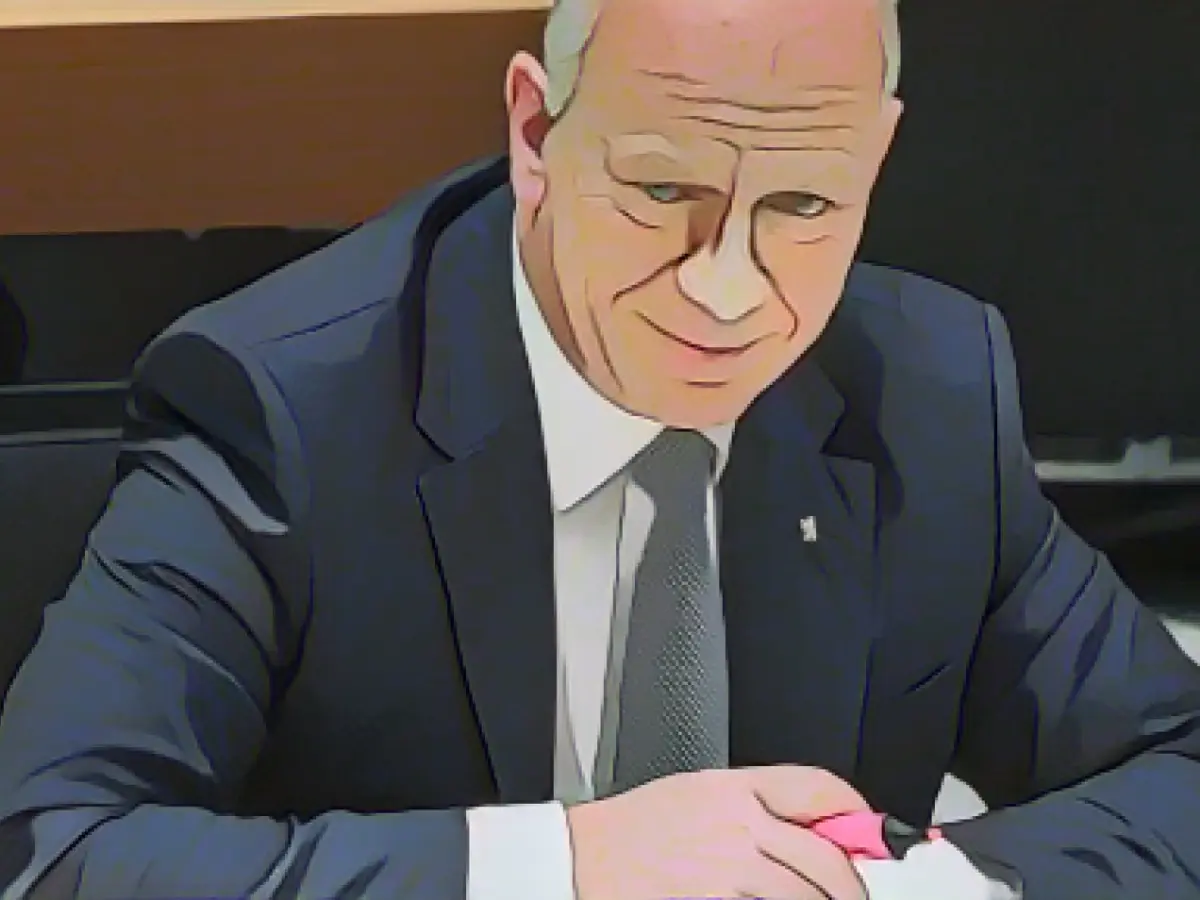Household - Wegner: Reform of the debt brake "absolutely necessary"
Even after the agreement of the traffic light coalition on a constitutional federal budget for 2024, Berlin's Governing Mayor Kai Wegner (CDU) is sticking to his call for a reform of the debt brake - despite criticism from his party leader Friedrich Merz.
"I consider investment in the future to be absolutely necessary," Wegner told the German Press Agency. "Neither Berlin, nor other federal states, nor the federal government can afford this from the budget."
The investment and refurbishment backlog for transport routes, bridges, schools, police and fire stations is enormous, as many things have been left to wear out over the years. It is also about attracting companies, especially in eastern Germany - and about retaining these companies. Wegner also sees enormous challenges in terms of climate protection, the transport transition and housing construction.
"All of this costs a lot of money," says Wegner. No state government could finance this from a normal budget. "That's why I maintain that the debt brake must be reformed. And in the area of investment." He is not interested in election gifts in the area of consumption, said Wegner, referring to expenditure without long-term benefits. "Instead, I am really concerned with the existentially important investments that our country needs right now."
The debt brake enshrined in the Basic Law prohibits the federal and state governments from incurring new liabilities in their budgets - apart from certain exceptions. Against the backdrop of the federal budget crisis, the SPD, Greens, Left Party, trade unions and some economists questioned the regulation.
Merz positioned himself against it and criticized Wegner for his stance, which, however, is also shared by some other CDU state premiers. Merz and Wegner engaged in a kind of long-distance duel with some biting remarks - at last it was said that they wanted to talk about it directly. However, a meeting has not yet taken place, as Wegner said. "We are still in the process of finding a date. And I'm looking forward to the meeting."
He has a very clear stance on the issue. "And when I have a clear stance, I make it known. Sometimes that might not please everyone," says Wegner. "I believe that we are all in a discussion process together, including with other CDU minister presidents. I am therefore quite sure that we will find a good solution," said the Berlin head of government and CDU state chairman.
"Especially in these times, when we are experiencing a great loss of trust from many people, not just in political parties but in democratic institutions in general, I think it is important that we offer joint solutions," Wegner said. "Regardless of whether you are in opposition or in government: this is about responsibility." By reforming the debt brake, the state could also show that it is capable of acting.
Wegner made it clear that he sees such a reform, which must also include clear regulations on debt repayment, as a medium-term goal. "Even if I would like it to happen quickly."
As a short-term solution to the financial problems of the federal and state governments, he supports proposals for a future or investment fund secured in the Basic Law similar to the special fund worth billions for the Bundeswehr set up after the war in Ukraine. "I think that's the right way forward in the short term."
After lengthy negotiations, top representatives of the traffic light coalition agreed last Wednesday on how to plug billions of euros of gaps in the federal budget for 2024 and in the climate and transformation fund following a ruling by the Federal Constitutional Court. Among other things, the agreement provides for an increase in the CO2 price for refueling and heating with fossil fuels.
Read also:
- A clan member is punished here
- Traffic lawyer warns: Don't talk to the police!
- Will he be convicted as Jutta's murderer after 37 years?
- He also wanted to kill his cousin
- Despite the opposition from CDU party leader Friedrich Merz, Kai Wegner, the Governing Mayor of Berlin, continues to advocate for a reform of the debt brake, considering it necessary for future investments.
- Wegner emphasizes that neither Berlin, other federal states, nor the Federal Government can afford the massive investment and refurbishment backlog in areas like transport, schools, police stations, and climate protection.
- The need for investment is crucial in eastern Germany to attract and retain companies, facing challenges in areas like housing construction, climate protection, and the transport transition.
- Criticizing election gifts in consumption, Wegner focuses on long-term, existentially important investments that Germany requires at present.
- The debt brake, enshrined in the Basic Law, prohibits new liabilities for federal and state governments in their budgets, except for certain exceptions.
- Despite Merz's criticism, some CDU state premiers also support Wegner's stance on the debt brake reform, with both engaging in a dialog over the issue, despite their differences.
- In the face of trust loss from the population, Wegner sees a reform of the debt brake as an opportunity to demonstrate that the state can take action, setting clear regulations for debt repayment as part of the reform.
- As a short-term solution, Wegner supports proposals for a future or investment fund set up in the Basic Law, similar to the Bundeswehr's special fund set up following the war in Ukraine.
Source: www.stern.de








